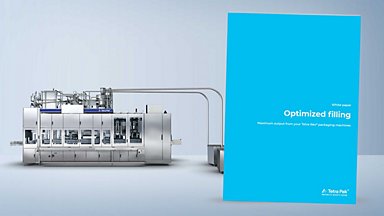Sustainability: from awareness to action
By Sonya Kayani, Communications Director Greater Middle East & Central Asia
Consumer attitudes towards sustainability in food retailing have evolved significantly in recent years. The key trends shaping these changing attitudes include environmental concerns, health and wellness awareness, demands for greater transparency, ethical considerations, and awareness of the need for packaging and waste reduction.
Overall, consumers are becoming more mindful of the broader impacts of their food choices and this shift is influencing food retailers to adapt their practices and offerings to meet the growing demand for sustainable products and transparent supply chains.
In a recently published Consumer Environment Awareness Report, Tetra Pak surveyed 14,500 consumers from 29 countries to explore and understand consumer responses towards environmental concerns and sustainable packaging.
The report found that environmental concerns remain high, with 76% of the world’s consumers expressing concern. Pollution continues to be the primary concern, closely followed by worries about plastic waste and global warming/climate change. As a result, a majority of consumers are actively trying to reduce waste, including efforts to minimise food and packaging waste, alongside an interest in recycling and the sourcing of packaging materials.
This presents challenges to our industry, but these changes in consumer preferences also create unprecedented opportunities for businesses globally to innovate in the fields of food production, processing, packaging, delivery and disposal.
At Tetra Pak, we take a circular approach to food package design, in order to optimise the use of resources along the packaging value chain. Our ultimate ambition is to create ‘the world’s most sustainable food package’. For us, this means cartons that are fully made of renewable or recycled materials, that are responsibly sourced, thereby helping to protect and restore our planet's climate, resources and biodiversity, contributing towards carbon-neutral production and distribution. To fulfill this exacting brief, they should also be convenient and safe, therefore helping to enable a resilient food system; and be fully recyclable.
To achieve this, we are focusing on four key areas: sustainable and anti-littering openings; low-carbon renewable materials; keeping existing materials in use with certified recycled polymers; and circular package design.
Positive progress
We are making good progress, introducing products such as Tetra Recart, which we believe is the smart choice for shelf-stable food. Tetra Recart is a carton packaging solution designed for portable products like soups, sauces, and ready meals – that is those that can be heated to sterilise food after it has been placed into the container and hermetically sealed. This innovative packaging offers a sustainable and convenient alternative to traditional steel cans and glass jars.
It carries impeccable sustainability credentials. Made from 69% responsibly sourced renewable materials, primarily paperboard sourced from responsibly managed forests, Recart cartons are fully recyclable and have a lower carbon footprint compared to other packaging options. Carbon emissions from Tetra Recart over the lifetime of the package are 81% lower than those of steel cans and glass jars, according to our critically reviewed life-cycle assessment carried out by independent scientific institutes, in line with ISO 14040 and 14044. The product uses only about 40% of the energy of steel cans and glass jars, from manufacturing to distribution to waste management.
However, it is intensely practical, offering numerous advantages across the supply chain. Consumers see it as practical, modern, safe and natural. They are happy to use it, as they find it easy to open, pour from, store and dispose of. The cartons feature a resealable closure, making it convenient for consumers to use and store leftover products. Recart cartons also offer excellent product visibility, allowing consumers to see the contents easily.
Producers appreciate the size-flexible lines, smaller factory footprint, and lower operational costs. The lightweight and space-efficient rectangular design facilitates easy transportation and storage, offering 10–20% more units per truck compared with cans. For recycling, six to ten times more empty Tetra Recart carton packages can be transported on a single truck compared with cans.
Retailers benefit from lower weight, higher pallet and space efficiency and lower in-store waste, while e-tailers appreciate how the size and shape fits perfectly into meal kits and delivery boxes.
We are constantly striving to improve our products, to collaborate on circular development, and to lead the sustainability transformation within our industry. It is only by working together across the value chain, and taking collective actions that we can help decarbonise and transform the world’s food systems, while contributing to circularity and increasing food packaging recycling. We are here to support the change in both the consumer and manufacturer as they move from awareness to action.






